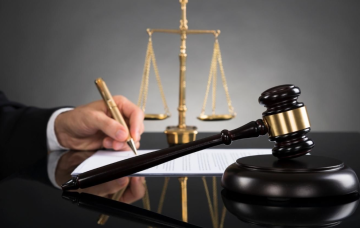What documents should TCC employees have when delivering summonses?
In this article, we will consider what documents employees of the territorial recruitment center (TCC) must have when serving calls. This issue is important for ensuring the legality and observance of the rights of citizens during conscription. We will provide a legal analysis of the situation and recommendations to protect your rights in case of violations.
Legislative basis for serving subpoenas
The delivery of calls is regulated by the Law of Ukraine "On Military Duty and Military Service" and other legal acts that define the procedure for conscription for military service. A call-up is an official document that obliges a person to report to a military commissariat and must be served in accordance with established procedures.
Employees of the TCC must have the appropriate documents confirming their authority to serve summonses, as well as comply with the requirements of the law regarding the issuance of summonses.
The main documents that TCC employees should have
- Service ID. Employees must have an official ID card that confirms their right to perform official duties, including serving subpoenas.
- Order or instruction. A document confirming the appointment of an officer to serve summonses issued by the command of the TCC.
- Original or copy of the summons. The summons must be properly executed, contain all the necessary details and signatures of the responsible persons.
- Instructions for service. Documents containing instructions or guidelines on the procedure for serving subpoenas.
Peculiarities and conditions of service of calls
- Conscripts must be served personally or through their legal representatives, such as parents or guardians.
- The delivery procedure must comply with the requirements established by law, in particular with regard to the place and time of delivery.
- In case of violations, you have the right to legal advice to protect your rights.
Legal Assistance for Soldiers: Essential Support During War
Legal assistance during war is essential for both military personnel and their families, as legal advice during war covers a wide range of issues related to protecting their rights. A lawyer during hostilities provides military lawyer services, including everything from drafting reports for leave or discharge to handling issues involving medical commissions. Military lawyer are critical in representing the interests of soldiers, especially during legal disputes.
Why should you contact us?
Legal advice. We provide a detailed legal analysis of your situation and help you prepare documents in case of disputes regarding the service of subpoenas.
Our clients receive a professional legal opinion and recommendations for further actions. We provide full support at all stages of your case.
Additionally, we offer online consultations, which allows you to get the necessary information without visiting the office. It is convenient and fast.
Thanks to our team, you will receive the support of professionals who have experience in resolving such issues and are ready to protect your rights.
Impact of unlawful service of subpoenas on your rights
The unlawful service of summonses can significantly affect your rights and obligations related to the performance of military duty. It is important to timely document all circumstances that may confirm a violation of the service procedure and seek legal assistance to protect your rights to the fullest extent possible. Legal advice can help you determine the best course of action in your situation and avoid possible violations of the law.
Typical mistakes when serving summonses
- Insufficient documentary evidence of the powers of the TCC employees. It is important to check whether they have service certificates and other documents.
- Ignoring procedural requirements. Delivery of subpoenas must comply with the requirements established by law.
- Failure to consult a lawyer. This can lead to a misunderstanding of their rights and obligations in the process of serving summonses.
Military Lawyer Services: Protecting Rights in Times of Conflict
Military lawyer online platforms offer quick solutions to legal problems that may arise during combat or in peaceful settlements. Military lawyer Kyiv offers local support, while a lawyer in war can also provide online assistance. Military lawyer services ensure professional support and protection of soldiers' rights throughout their military service.
Tips for resolving the issue of unlawful service of summonses as soon as possible
In order to successfully resolve the issue of unlawful service of subpoenas, we advise you to prepare all the necessary documents confirming the violation in advance, seek legal advice, and timely document all the circumstances that may confirm your rights. This will help you avoid possible legal consequences and ensure a fair hearing of your case. Our team is ready to support you at all stages of this process.
Frequently asked questions
Question
What documents should TCC employees have when serving summonses?
Answer
TCC employees must have an official identity card, an order or instruction on their appointment, an original or a copy of the summons, as well as instructions for delivery confirming their authority.
Question
What should I do if the summons was served illegally?
Answer
In case of unlawful service of a summons, you should document the violation, preserve all evidence and seek legal advice to prepare a complaint or statement.
Question
How can I check the authority of TCC employees when serving summonses?
Answer
Ask the TCC employees to present their official IDs and documents confirming their appointment to serve the summonses. This will help to verify their authority.
The service of summonses must comply with the requirements established by law, and the employees of the TCC must have the relevant documents. It is important to execute all the necessary documents in a timely manner and seek legal advice in case of violations to ensure a successful resolution of your issue. Our team is ready to provide you with support and assistance at all stages of this process to protect your rights and avoid negative consequences.




































